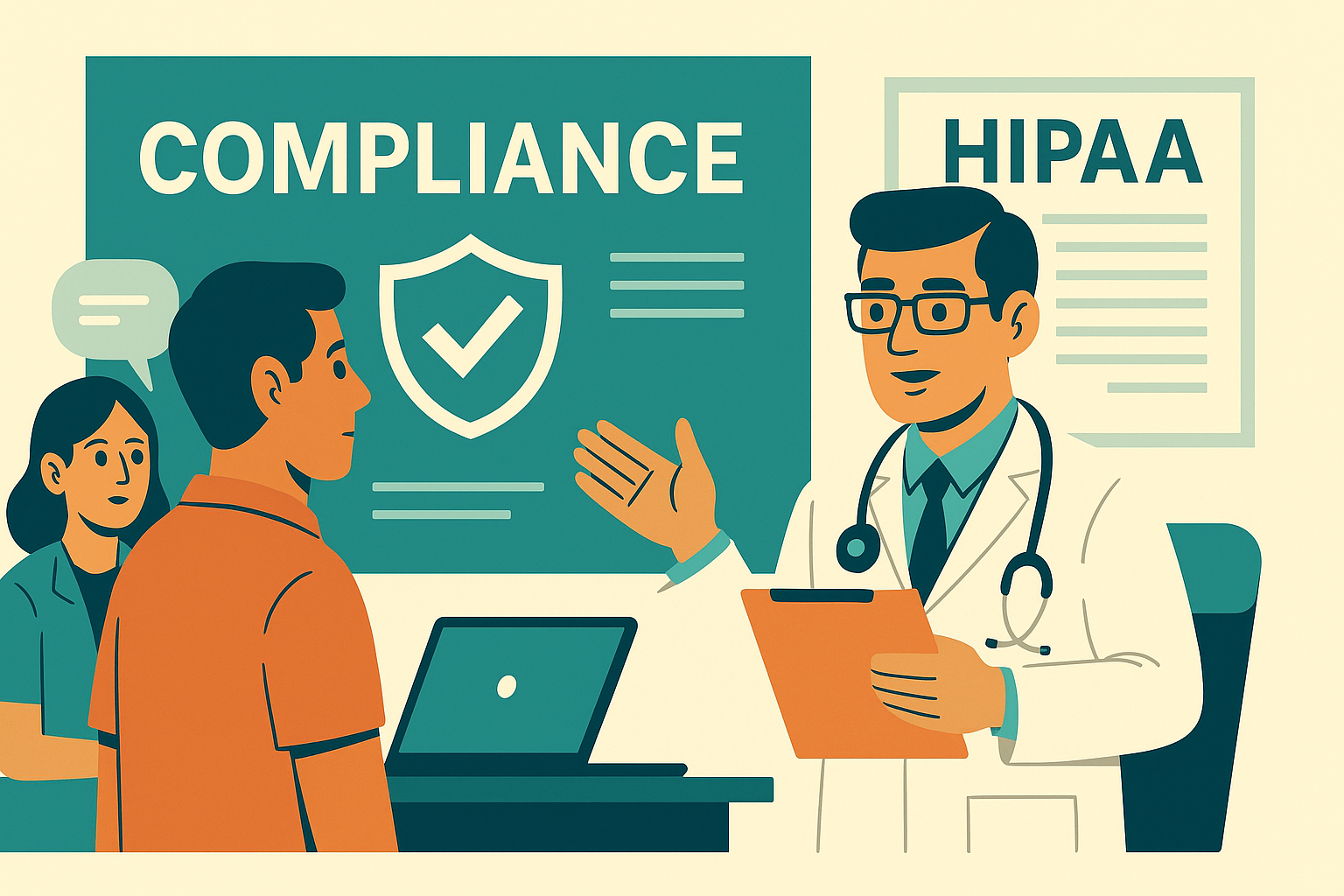
Is My Practice Compliant?
By TransOptimum Content Team
Published March 2024 — Updated April 2025
Is Your Practice Legally Compliant with Language Access Laws?
Every day, thousands of Limited English Proficient (LEP) patients receive medical care in the U.S. without proper language support — and many clinics don’t realize they’re one mistake away from a lawsuit or worse. HIPAA compliant medical interpreting is not just a best practice — it’s a legal requirement. HIPAA, Title VI of the Civil Rights Act, and the Americans with Disabilities Act all require healthcare providers to offer qualified interpreting services to patients with limited English proficiency or hearing disabilities. Failure to comply can result in fines, legal exposure, or loss of federal funding.
But this isn’t just a legal issue — it’s a patient safety issue. Miscommunication can (and has) led to tragic outcomes, from botched diagnoses to preventable deaths. In this article, we’ll break down what the law requires, what’s at stake, and how to fix your compliance gaps without blowing your budget.
What Do Title VI, ADA, and HIPAA Require?
Title VI of the Civil Rights Act prohibits discrimination on the basis of national origin — which includes language. That means if your clinic receives federal funding (even indirectly), you’re legally required to provide meaningful access for LEP patients.
The Americans with Disabilities Act (ADA) requires the provision of sign language interpreters for patients with hearing disabilities.
HIPAA mandates that all communication with patients — including those in another language — must maintain the same level of confidentiality and accuracy.
In short, if you’re not offering access to qualified interpreters, you’re likely out of compliance — and exposing your organization to significant risk.
Real Case Study: A Preventable Tragedy in New Mexico
In February 2018, 67-year-old Navajo elder Larry Williams arrived at San Juan Regional Medical Center in Farmington, NM, speaking primarily Navajo. His wife usually interpreted, but on that day she was unavailable — and no certified interpreter was provided.
The staff misdiagnosed him with a routine UTI, missing clear signs of sepsis. He was discharged and returned in septic shock, dying just two days later. Larry’s family later sued the hospital, arguing the lack of language access led directly to his death.
While this is an extreme example, it highlights the very real risks that come from communication breakdowns in healthcare — especially when clinics fail to provide HIPAA compliant medical interpreting.
Penalties for Non-Compliance
- Loss of federal funding (Medicaid/Medicare)
- Lawsuits from patients or advocacy groups
- Public scandals or media coverage
- Internal liability and malpractice exposure
Even small clinics aren’t immune — in fact, they’re often more vulnerable because they lack in-house legal departments or formal policies.
How to Become Compliant (Without Breaking the Bank)
The good news? Compliance is achievable with the right tools. Here are three steps to get started:
- Assess Your Risk – Review your intake process and how you currently serve LEP patients.
- Partner With a Trusted Provider – Choose a language services provider that offers HIPAA compliant medical interpreting (over-the-phone, video, and document translation).
- Document Everything – Keep records of interpreter usage and language access procedures in case of audits or complaints.
How TransOptimum Helps
We work with clinics, legal aid organizations, and public institutions across the U.S. and Latin America to ensure fast, secure, and affordable interpreting solutions in over 300 languages.
- 24/7 access to HIPAA compliant medical interpreting via over-the-phone and video interpreters
- On-demand or subscription-based plans tailored to your usage
- Full documentation and usage logs to protect your compliance
If you’re unsure whether your current process meets legal requirements, we’ll review it with you — no charge, no pressure. You can also explore our full range of services for medical providers.
Ready to Protect Your Patients and Your Practice?
Don’t wait for a lawsuit to find out you were non-compliant. The cost of inaction is far higher than the investment in proper language support.
👉 Schedule a free compliance consultation today.
We’ll show you how to stay compliant, protect your patients, and cut costs — all without adding extra stress to your already busy day.